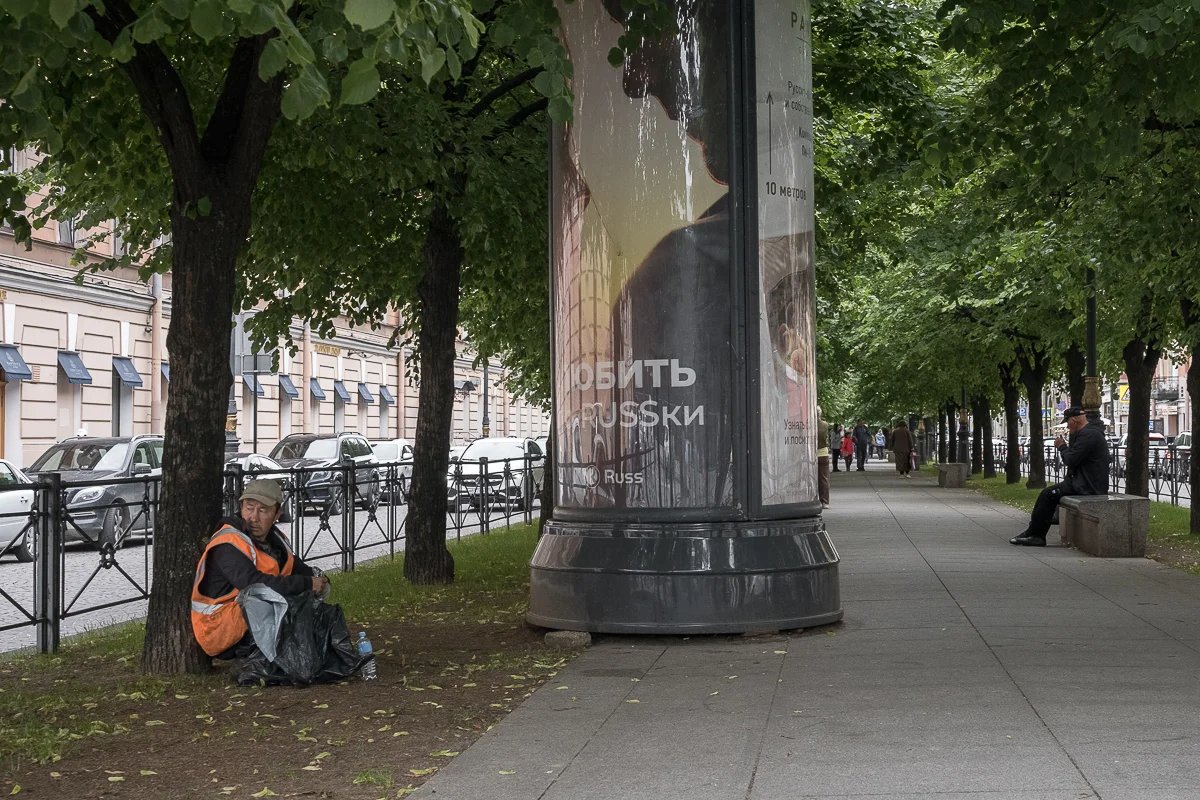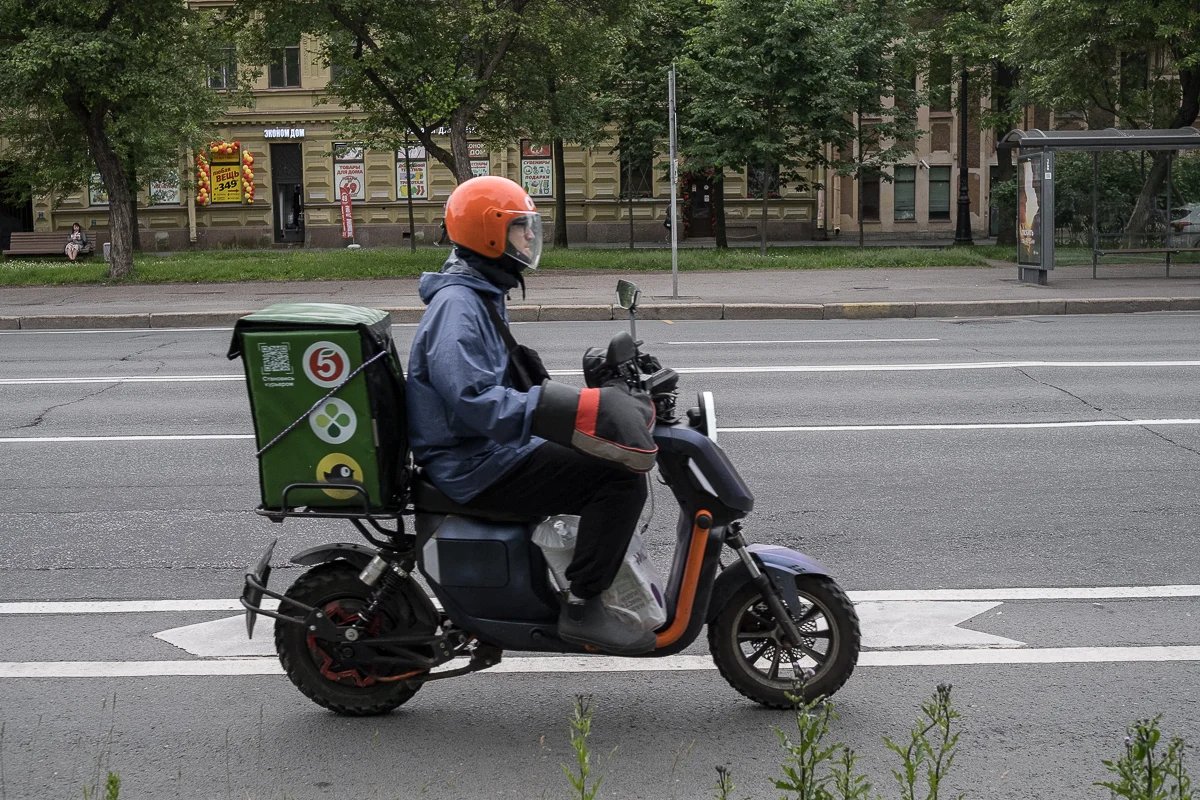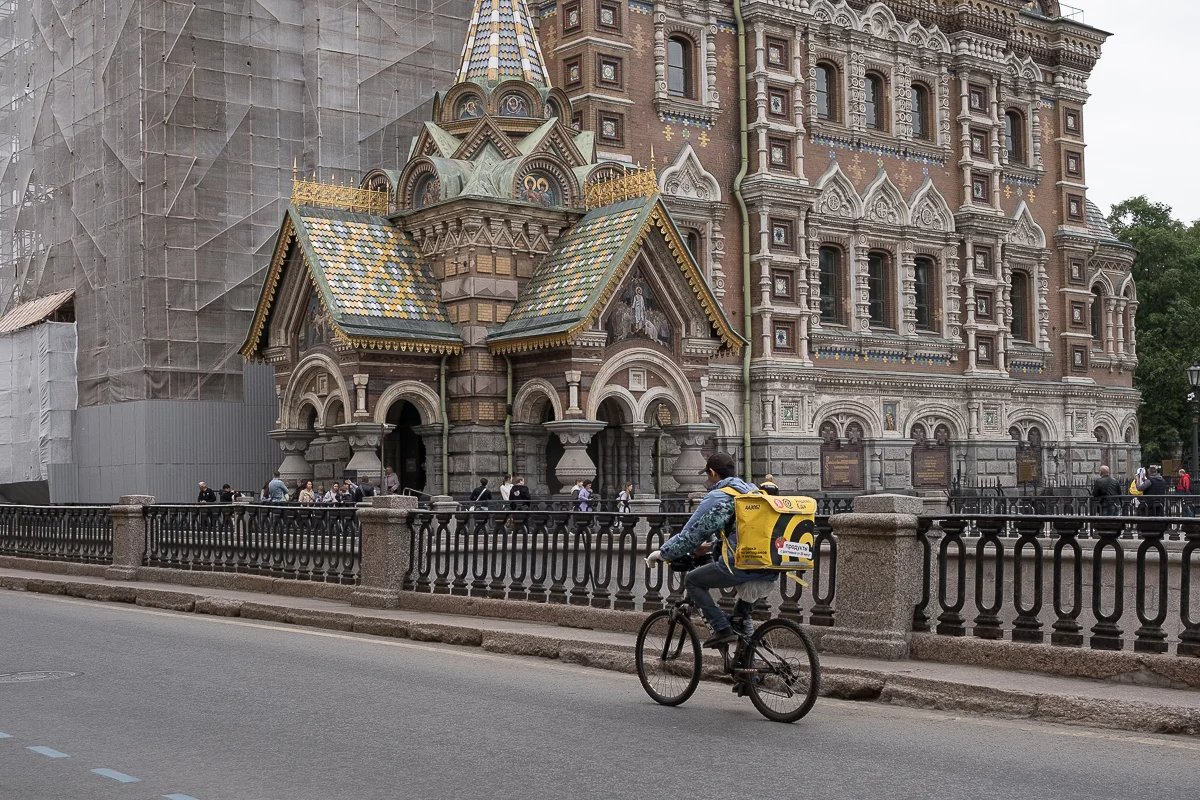



Russia’s second city St. Petersburg could find itself facing a huge labour shortage following a ban on migrants working as taxi or delivery drivers that was due to come into force at the start of the month. Though the legislation has been postponed, the city government has indicated that the ban is “at the approval stage” and will be introduced at a later date.
Given that over half of all couriers in the city are migrants, and about 70% of the city’s taxi drivers come from Central Asia, not only is the ban fundamentally racist, but is also likely to raise the cost of living for city residents.
The new legislation has not been welcomed by all, with several members of St. Petersburg’s Legislative Assembly voicing their opposition. While some are confident that banning migrants from carrying out these two key roles will benefit Russians, others warn that migrant labour is crucial to the viability of the city’s economy and business leaders have warned that the legislation will negatively affect the quality and accessibility of taxi and delivery services across the city.
Last spring, amid increased checks on migrants, especially those from Tajikistan, Ilham and his wife were afraid to stay in Russia and seriously considered returning home.
Ilham, a young man from Tajikistan, says that he and his family will have to leave Russia if the rules are enforced. Over the past 18 months, Ilham has had to leave Russia three times due to increasing restrictions on migrants. He views Russia’s attitude towards foreign workers as unfair: “When Russia needs hard or dirty work done, they need us right away. When the authorities need to punish someone, they need us again. If this is politics, I don’t get it: why bite the hand that feeds you?”
Ilham and his family first came to St. Petersburg from Tajikistan five years ago. After initially working on construction sites, Ilham started working seven days a week as a driver for a taxi company, having taken out a loan to buy a car.

A migrant worker in St. Petersburg.
Following the Crocus City Hall terror attack in Moscow in March 2024, which led to rising xenophobia and aggression towards migrants, Ilham began to be concerned about how welcome he was in Russia. “Every second passenger cancelled their trip. Eventually, they stopped cancelling trips, but if I started talking, they would ask where I was from. Once I told them I was from Tajikistan, polite passengers would stop talking, but others would start speaking as if it was all my fault.”
Last spring, amid increased checks on migrants, especially those from Tajikistan, Ilham and his wife were afraid to stay in Russia and seriously considered returning home. The only thing that stopped them from leaving was the loan he had used to buy his car.
In a deliberate effort to target migrant taxi drivers, the Russian authorities restricted the types of car permitted for use as taxis.
Once the xenophobic vitriol gradually began to subside, Ilham thought he could stay on in Russia after all. However, in a deliberate effort to target migrant taxi drivers, the Russian authorities restricted the types of car permitted for use as taxis. As Ilham’s car doesn’t meet these requirements, he has decided to buy a second car on credit in order to be able to continue working.
Then, early last month, Ilham learned that migrants in St. Petersburg would face a blanket ban on working as taxi drivers and couriers. While he is yet to receive official confirmation from Yandex.Taxi, the company he works for, Ilham — like many of his colleagues — is resigned to leaving, saying “there’s nothing else I can do about it”.
St. Petersburg deputies first began discussing banning migrant workers from being drivers and couriers in February, and the man behind the ban, United Russia State Duma Deputy Mikhail Romanov, has repeatedly claimed, without providing any statistical evidence, that migrants do not speak proper Russian, do not know the law, often violate traffic regulations, drive on pavements, and are responsible for a large number of car accidents.

Courier service in St. Petersburg.
At the end of March, law enforcement agencies began cracking down on illegal migrants living in the city. The Interior Ministry announced a month-long series of raids in St. Petersburg, and by the end of April, reported that 1,286 illegal migrants had been found working as couriers. Of those, 520 were placed in detention centres to await deportation, while the rest were charged with working illegally.
The large-scale raid was less an attempt by the authorities to regulate the courier industry, and more of a performative way of demonstrating the harsh line being taken by the government on illegal immigration.
While all taxi and courier companies are busy making sure that they comply with the legislation within three months, St. Petersburg deputies are attempting to extend the ban into next year.
Draft legislation already being prepared at the time of the raids stipulated that St. Petersburg delivery services and taxi companies had to test their employees on traffic regulations, but stopped short of banning migrant workers from the two sectors. When the draft legislation was published on 28 May, however, the legislation had transformed into a ban.
The law, which is to remain in place until the end of 2025, shocked those who opposed it, not least as not all migrants will be banned from working in the two spheres: EU citizens and anyone with refugee status or permanent residency is exempt. While all taxi and courier companies are busy making sure that they comply with the legislation within three months, St. Petersburg deputies are attempting to extend the ban into next year.

Courier service in St. Petersburg.
Deputies first submitted a proposal to exclude Central Asian migrants from delivery, taxi services, catering, public transport and other jobs in October 2023, introducing a bill to the State Duma, calling for these jobs to be freed up for Russians and arguing that the move would also improve domestic security.
The authorities in nine Russian regions — Kurgan, Kaluga, Kaliningrad, Tula, Tyumen, Magadan, Chelyabinsk, Krasnodar and the Khanty-Mansiysk autonomous district — promptly decided to ban foreigners from working as drivers, couriers, cooks or waiters. Other Russian regions soon followed suit, all with their own local twist, and there are now regions where migrants from former Soviet states cannot work in schools, healthcare, retail or even on construction sites.
A 2024 ban on migrants from Uzbekistan, Tajikistan, Moldova and Azerbaijan working as couriers and taxi drivers in the Leningrad region, which surrounds St. Petersburg, was quietly abandoned in 2025.
While 51 of Russia’s 88 regions now ban migrants from certain professional spheres, an increase of 11 regions since last year according to the Russian Interior’s Ministry, these bans have not been trouble free, with Yakutia, in the Russian Far East, moving to lift its recently introduced ban due to an acute manpower deficit in the region, which it hopes to remedy by readmitting workers from Central Asia to the workforce.
Likewise, a 2024 ban on migrants from Uzbekistan, Tajikistan, Moldova and Azerbaijan working as couriers and taxi drivers in the Leningrad region, which surrounds St. Petersburg, was quietly abandoned in 2025.

A St. Petersburg taxi.
Uzbek couriers who spoke to Novaya Europe said that their managers had informed them in mid-June that they might be laid off. There is still hope on both sides that either the law will be repealed or won’t be properly enforced, but if that’s not the case, then the ban will affect those in all walks of society.
“The initiative will negatively affect the quality and availability of taxi and delivery services,” Yandex said in a statement issued in late May, following the publication of the draft resolution “A significant reduction in the number of drivers will lead to an average 10–15% increase in prices. And increasing demand for deliveries while reducing the number of couriers will more than double the cost.”
They hope the St. Petersburg draft resolution will remain just that — a draft.
It isn’t just taxi companies employing migrants that will feel the consequences. Businesses that lease cars to migrants to work as taxi drivers will also face difficulties. The new requirements will also affect small and medium-sized businesses, such as cafés and restaurants, which have increased sales thanks to such services.
St. Petersburg delivery services have unanimously argued that it’s irrelevant how many migrants work as couriers, but the fact that their departure will lead to an increase in labour costs that will be passed on to the customer, isn’t. They hope the St. Petersburg draft resolution will remain just that — a draft — and that the authorities will come up with a compromise solution acceptable for both business and customers.
The Russian government has banned independent media. We were forced to leave our country in order to keep doing our job, telling our readers about what is going on Russia, Ukraine and Europe.
We will continue fighting against warfare and dictatorship. We believe that freedom of speech is the most efficient antidote against tyranny. Support us financially to help us fight for peace and freedom.
By clicking the Support button, you agree to the processing of your personal data.
To cancel a regular donation, please write to [email protected]
VPNovaya
Help Russians and Belarusians Access the Truth
